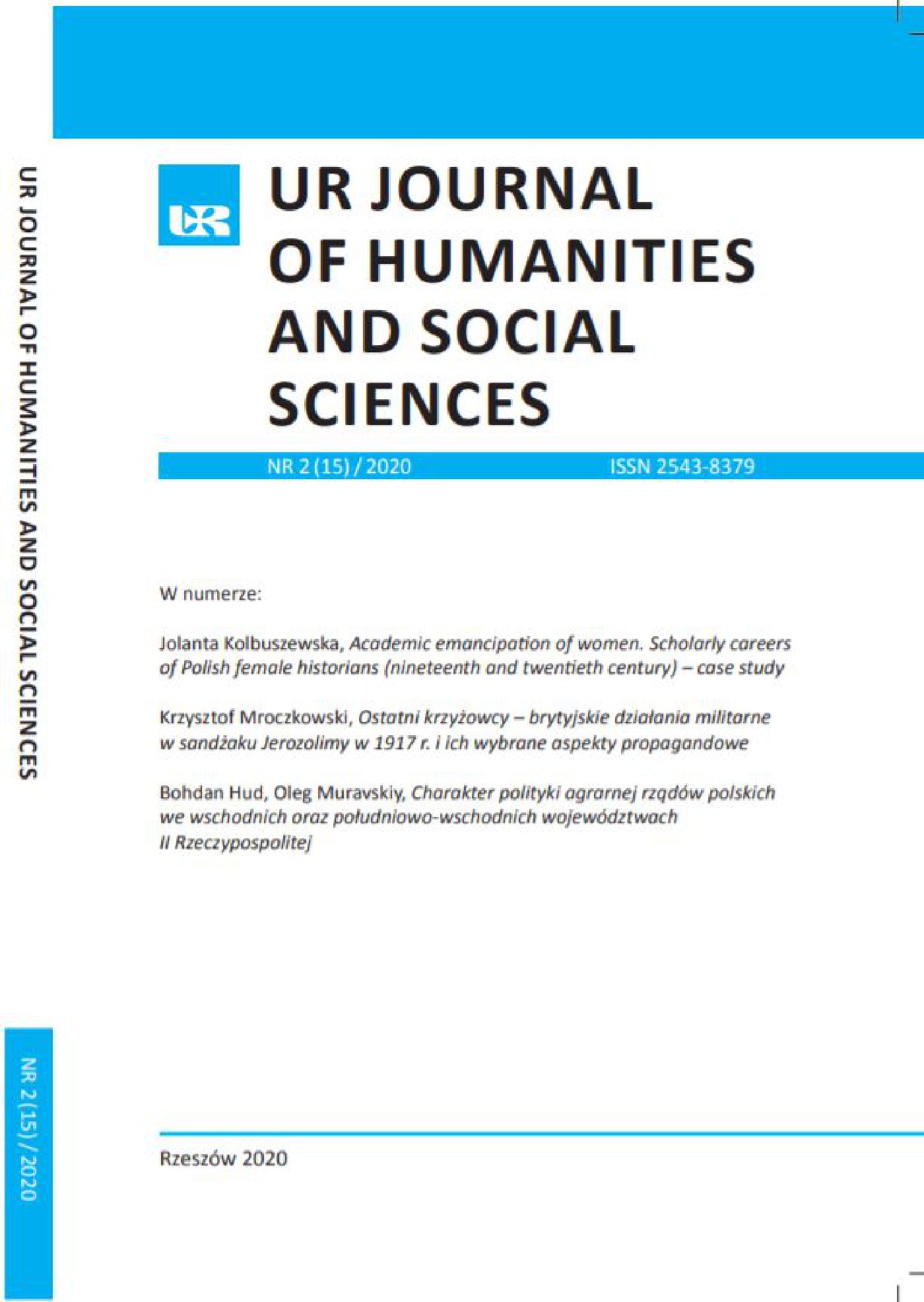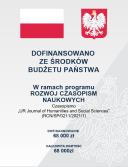The nature of Polish agricultural policy in eastern and south-eastern Voivodships during the Second Republic
DOI:
https://doi.org/10.15584/johass.2020.2.7Keywords:
Social conflict, Second Polish Republic, Eastern Galicia, Western Volhynia, agricultural policy, nationality policy, military settlements, civilian colonization, UPAAbstract
The author formulates and argues the thesis that the agricultural policy of the new Polish State in Ukrainian territories (Galicia, Polissya, and Volhynia) became an essential element of its ethnic policy. The roots of this policy dated back to before World War I. Polish politicians in Galicia introduced a regulation that big estates should be parceled out in ethnically mixed lands in a way that made the Polish small landowners, not the Ruthenians the primary beneficiaries. Over the course of time, it became a cornerstone of the agricultural policy of the Second Polish Republic. The principles of the land reform, dated back to the 1920s, were discriminating against Ukrainian peasants living in the south-eastern part of the II Polish Republic. First of all, because of the so-called raison d’état, which allowed for the further existence of large landed properties Even the legally defined upper limit – from 300 to 700 hectares – was oftentimes significantly exceeded. Discrimination of the local peasantry during the land division period was additionally intensified through the military settlement policy and civilian colonization of lands with the prevailing non-Polish population. It was generally considered that only Polish peasants could improve the situation in the Eastern borderlands. The growing number of settlers in closed rural communities caused a lack of arable land, and in consequence deepening civil conflicts, as well as favourable conditions for both nationalistic and communist propaganda. Thus, the nationalistic character of the Polish agricultural policy during the interwar period had a negative impact on Polish-Ukrainian relations both then and during World War II.Downloads
Download data is not yet available.
Downloads
Published
2020-06-30
How to Cite
Hud, B., & Muravskiy, O. (2020). The nature of Polish agricultural policy
in eastern and south-eastern Voivodships during the Second Republic. Journal of Humanities and Social Sciences, 15(2), 113–128. https://doi.org/10.15584/johass.2020.2.7
Issue
Section
Articles
License
Copyright (c) 2020 Wydawnictwo Uniwersytetu Rzeszowskiego

This work is licensed under a Creative Commons Attribution-NonCommercial 4.0 International License.



